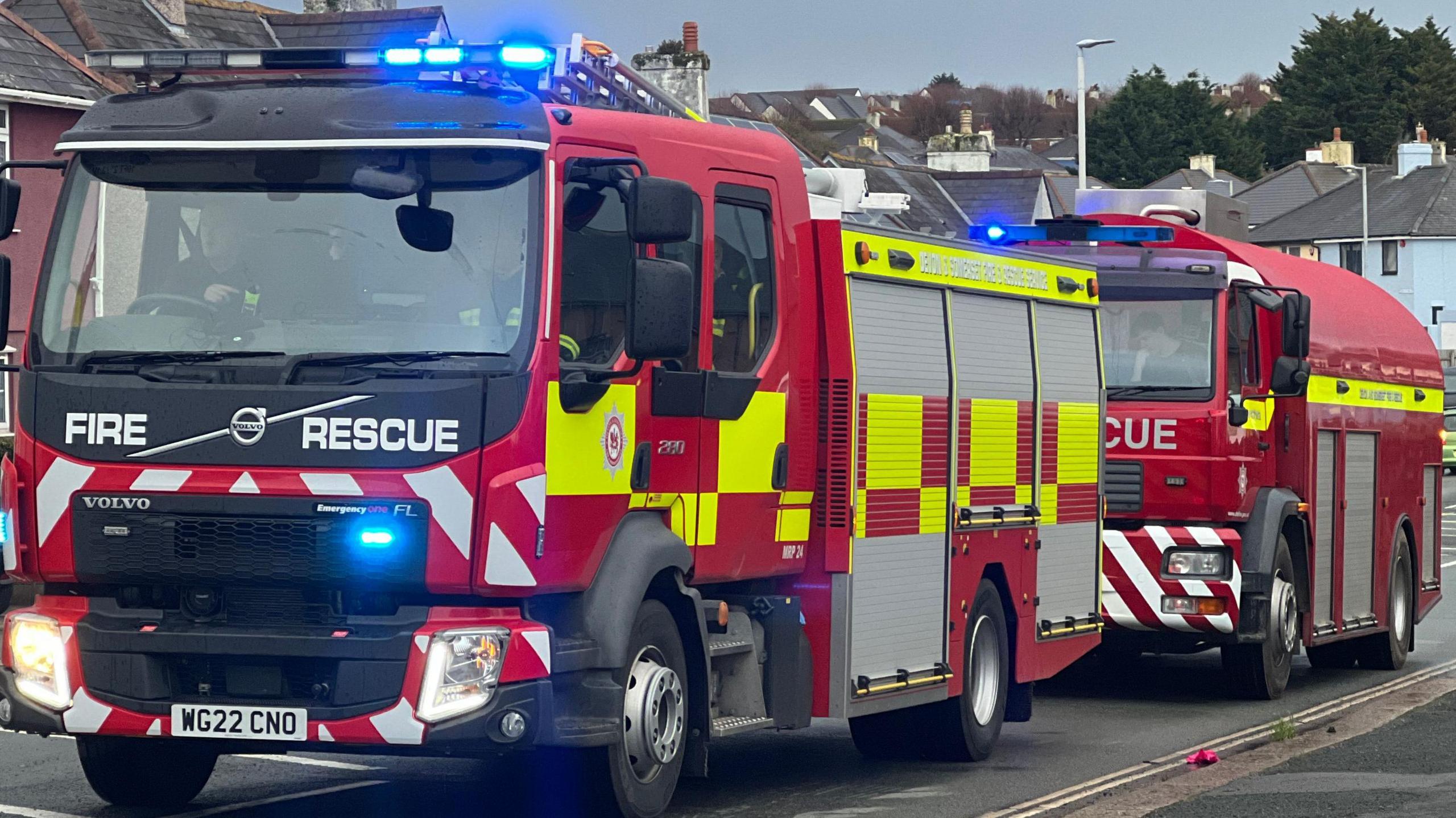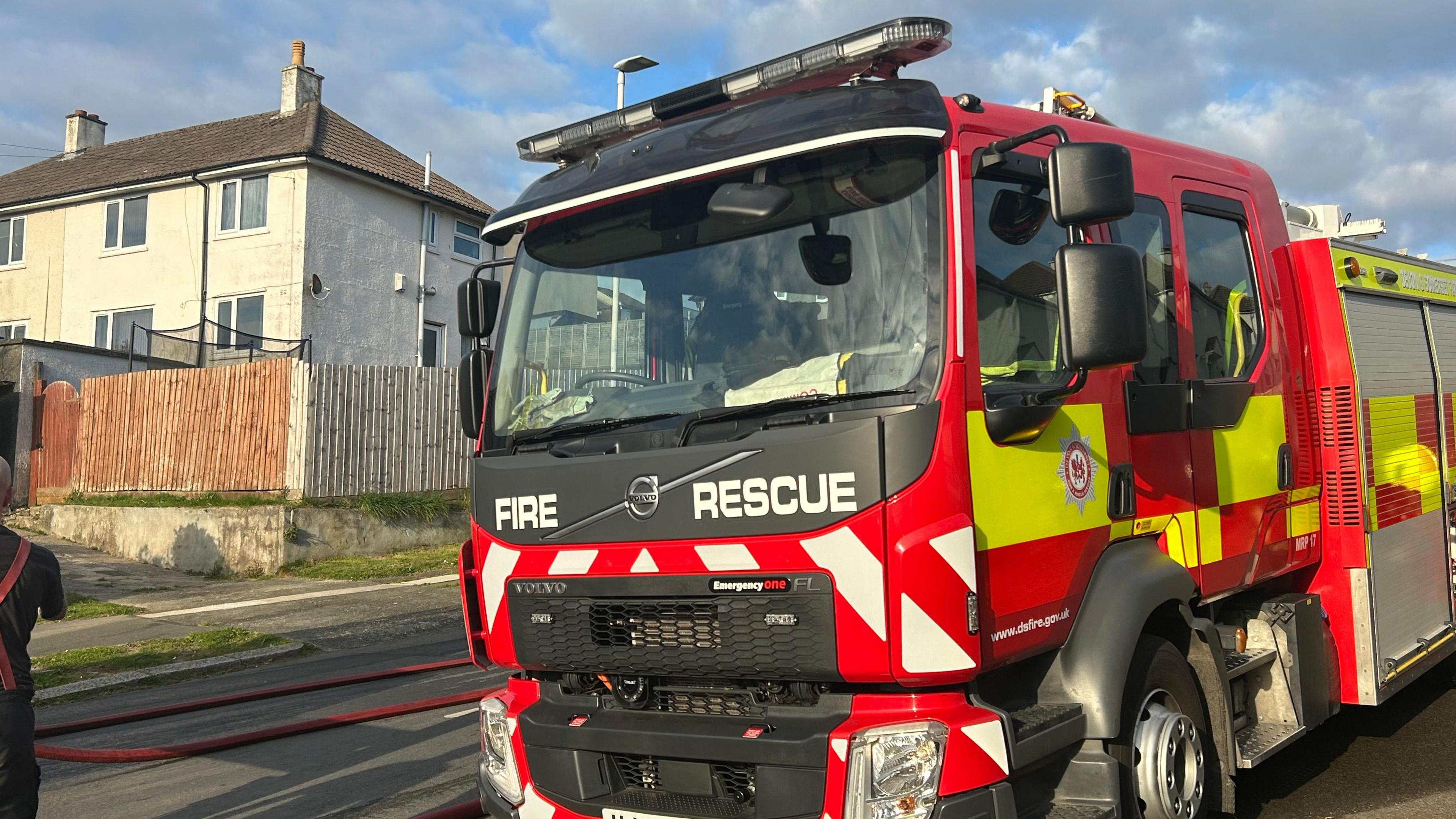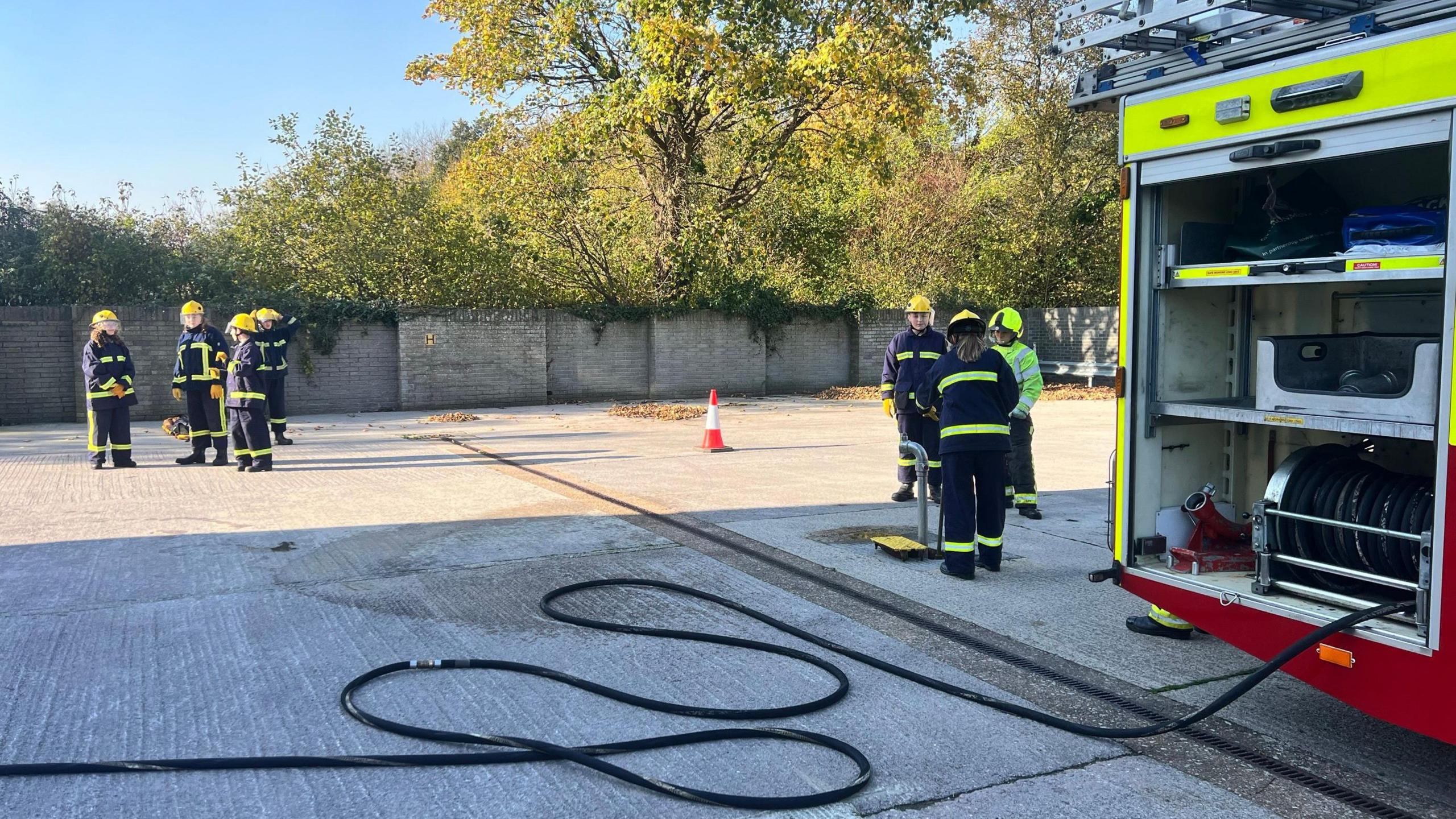Call-outs to automatic alarms to be reduced

Devon and Somerset Fire and Rescue Service said only 1.7% of automatic fire alarms attended by the service were classed as emergencies
- Published
Fire crews will no longer respond to some automatic fire alarms, Devon and Somerset Fire and Rescue Service has announced.
It said automatic alarms alerted the service almost 58,000 times in the five years leading to March 2025 with an average of 1.7% being emergencies.
The service said "this places an unnecessary burden on the service's resources and ability to be ready and available for genuine emergencies".
It said it would always attend fire alarms at domestic properties, respond to a confirmed fire at any building and continue to respond to automatic fire alarms at premises exempt from the changes.
The service said the changes were made after consulting with the public, businesses and staff on five options and would be implemented from 4 November.
For residential properties care homes and houses of multiple occupancy would be exempt and there would be a phased approach to not attending automatic alarms during daytime hours, without confirmed signs of fire.
Sheltered accommodation would also see a phased approach and start with prisons, boarding schools and hospitals that are not exempt.
'Available for emergencies'
The changes extend to policy introduced 12 years ago when the service stopped attending automatic alarms at non-domestic properties during weekday working hours, unless there was a confirmed fire.
Chief Fire Officer Gavin Ellis said he would like to thank those who took part in the consultation: "Your views have made a difference to the way the changes will be implemented.
"These changes will help us to keep our fire crews available for real emergencies and prevention work rather than attending false alarms."
The force said the changes were expected to save them £178,577.53 a year.
It said sending its vehicles out less often would decrease its fuel consumption and carbon footprint.
Follow BBC Devon on X, external, Facebook, external and Instagram, external. Send your story ideas to spotlight@bbc.co.uk, external.
Related topics
- Published4 September

- Published5 September

- Published16 November 2024
